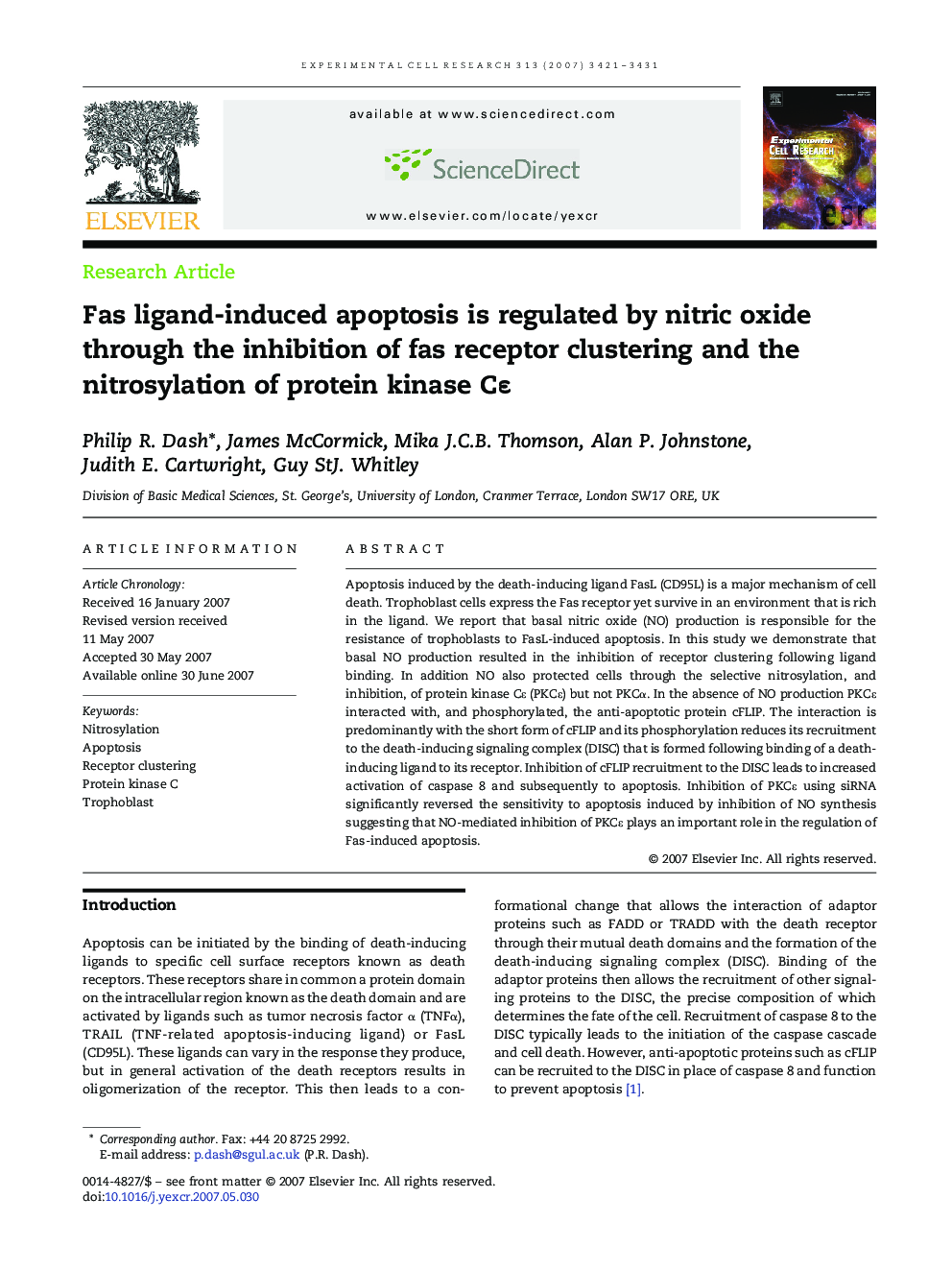| Article ID | Journal | Published Year | Pages | File Type |
|---|---|---|---|---|
| 2132537 | Experimental Cell Research | 2007 | 11 Pages |
Abstract
Apoptosis induced by the death-inducing ligand FasL (CD95L) is a major mechanism of cell death. Trophoblast cells express the Fas receptor yet survive in an environment that is rich in the ligand. We report that basal nitric oxide (NO) production is responsible for the resistance of trophoblasts to FasL-induced apoptosis. In this study we demonstrate that basal NO production resulted in the inhibition of receptor clustering following ligand binding. In addition NO also protected cells through the selective nitrosylation, and inhibition, of protein kinase Cε (PKCε) but not PKCα. In the absence of NO production PKCε interacted with, and phosphorylated, the anti-apoptotic protein cFLIP. The interaction is predominantly with the short form of cFLIP and its phosphorylation reduces its recruitment to the death-inducing signaling complex (DISC) that is formed following binding of a death-inducing ligand to its receptor. Inhibition of cFLIP recruitment to the DISC leads to increased activation of caspase 8 and subsequently to apoptosis. Inhibition of PKCε using siRNA significantly reversed the sensitivity to apoptosis induced by inhibition of NO synthesis suggesting that NO-mediated inhibition of PKCε plays an important role in the regulation of Fas-induced apoptosis.
Related Topics
Life Sciences
Biochemistry, Genetics and Molecular Biology
Cancer Research
Authors
Philip R. Dash, James McCormick, Mika J.C.B. Thomson, Alan P. Johnstone, Judith E. Cartwright, Guy StJ. Whitley,
